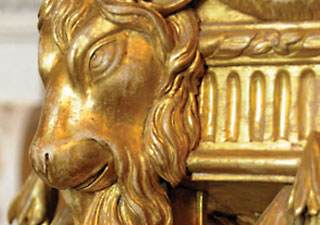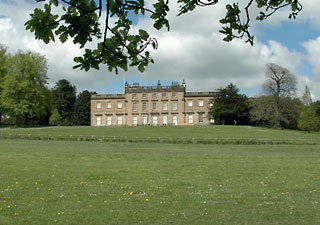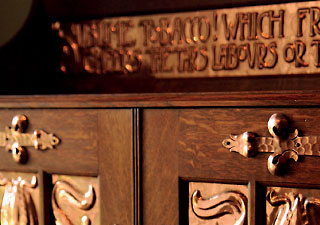Cannon Hall Museum



Address
Bark House Lane,
Cawthorne,
Barnsley,
South Yorks,
S75 4AT
Contact
Tel: 01226 790270
Email: use form on the Cannon Hall website
Website
Directions
Click the icon in the map and select "directions" at the bottom of the box.
(The postcode for the centre of
Penistone is S36 6AR.)
Distance from Penistone: 4.5 miles / 14 min
Details
NB Cannon Hall Frm, although nearby, is not part of Cannon Hall Museum.
You can read about the farm here.
Seventy acres of elegant parkland, with the stately Hall and gardens as a centrepiece, evoke a quintessentially English rural landscape. Strolling around, you may easily imagine yourself a character in an Austen novel; it's little wonder that the movie industry frequently casts the atmospheric surroundings as a perfect backdrop to the bustles and bonnets of the Georgian period.
The house itself was home to the Spencer and Spencer-Stanhope families for almost three hundred years.
The museum holds many surprises – pottery by De Morgan and Moorcroft, stunning glassware, paintings by Dutch and English masters and furniture by Hepplewhite. The fascinating Regimental Museum, purveyor of facts and adventures, vividly illustrates the part played by the 13th/18th Royal Hussars in the Charge of the Light Brigade.
'Below stairs' you will find the cavernous Victorian kitchens and scullery, fuelled by fully-working cast iron ranges – an extraordinary view of pre-convenience cooking.
The historic walled garden has its treasures too – the Cannon Hall pear tree collection, one of the most extensive in the North of England with over forty varieties, is celebrated annually.
There is also a pinery – a greenhouse for growing pineapples – and the original and unique 'Cannon Hall Muscat' grapevine, reputed to have been grown from a pip brought back from Athens by John Spencer-Stanhope in 1802. A cutting of the vine was exported to Australia and cultivated, and its descendants produce today's fine Australian wines.
Download the official Cannon Hall leaflet here.
DISCLAIMER
All the information on these pages is provided by the attraction's management or is adapted from their website. Any queries should be addressed to the owners or management, not Visit Penistone. Please check with the official website before visiting.
The maps are provided by Google and all information is reproduced here in good faith: Visit Penistone cannot be held responsible for any errors or misrepresentation.

